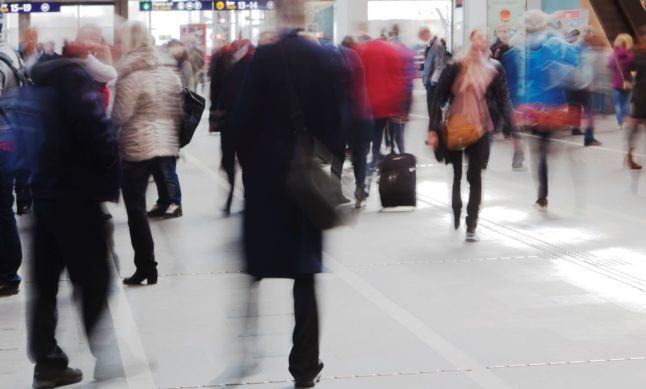There are a number of different options available when it comes to moving to Norway. The rules may be more or less strict depending on whether you are a national of the European Economic Area (EEA).
Those from within the EEA, and their family members, benefit from Freedom of Movement. At the same time, those from outside the EEA will need to obtain a residence permit to live legally and work in Norway.
Both non-EEA and EEA nationals will need to deal with the Norwegian Directorate of Immigration (UDI), though. In addition, Norwegian police deal with appointments to hand in documents relating to residency and citizenship applications.
And in cases where an application is rejected, the applicant may wish to appeal the decision via The Immigrations Appeal Board (UNE).
More than 65 percent of those who responded to our survey asking about the country’s immigration services said that their experiences were either “mostly negative” or “a mix of negative and positive”.
Meanwhile, just over a combined 20 percent said that their dealings with the authorities were “mostly positive” or “somewhat positive”.
The biggest complaint among those who had negative experiences with the country’s immigration authorities was of long-waiting times.
“Well, it takes them seven months or more to renew a straightforward permit. It took me three months to get an appointment, and it took them four more months to start processing and, finally, five days to approve (the permit). Worst part (is) I could not even travel home for Christmas. I mean, they can (at least) provide (a) temporary visa or passport till they process (the application). It’s crazy that it’s 2023, processing should be automated,” Lester from Dal wrote in response to our survey.
Some other applicants have been waiting anywhere between 18 months and up to two years to receive a decision on their application.
“I am the Norwegian reference person (in an application). My husband is Egyptian. (We have) waited 19 months so far, and the UDI cannot tell us when we will receive a reply. Both interviews were done, and more than enough documents were uploaded. They are destroying people’s lives and mental health,” Mariann, whose husband is applying as a non-EEA national, wrote.
The Local has previously reported on waiting times of up to 18 months and more on residence applications, and how some applications were pushed to the back of the queue following a change in how the UDI processes cases. The UDI informed The Local in late 2022 that the number of those facing long waiting times had decreased between April 2022 and September 2022.
Although, a small minority did praise the authorities for the speed and efficiency at which they worked.
“I came to Norway with my children and husband. The process was very smooth- even for my husband, who’s not an EU citizen. Fast, simple and people were really nice,” Sonia, who lives in Oslo, responded.
Another issue those who have had a challenging time with Norwegian authorities had was that they felt that the communication and information provided could have been more helpful.
“Some conflicting advice from telephone calls to what is on the website. Also, (there are) conflicting messages within the website,” Darren, a non-EEA residence permit holder, told The Local’s survey when asked about his experience with the immigration authorities.
“Smooth and quick for the most part, surprisingly fast work from the police and Skatteetaten (The Norwegian Tax administration). But their info was messed up, not coordinated, so I had to put extra time and effort bringing all the paperwork to different places that didn’t have info about me,” Anton, a non-EEA national who said they had a somewhat positive experience of Norway’s immigration authority, wrote.
However, not everyone who responded to our survey found the information provided to be confusing or sometimes conflicting. Some who had a positive experience said that the information provided was clear.
“Application portal quite useful and self-explanatory. But waiting times are unreasonably long and as are the customer helplines,” one reader who didn’t leave a name responded.
Another wrote, “Clear instructions if you pay attention to detail”.
Luci, who had mostly positive experiences, said the clarity of information provided could depend on what you are applying for.
“Being a British citizen pre-Brexit, I found the system very straightforward for a temporary residency permit. It became a little more complicated when I applied for a permanent residency permit after Brexit. I found it (the information) wasn’t very clear on what I had to provide paperwork-wise. When I got an appointment with all my paperwork, it turned out I didn’t need any of it,” she wrote.



 Please whitelist us to continue reading.
Please whitelist us to continue reading.
Not fit for purpose udi 18 months wait for any public service I e residence permit a national disgrace probably working from home and where is proper journalism from the local asking difficult questions and bring people to account in public service I wonder eating lunch with the head of the udi while the public and families lives are devastated report this I think not
Hello, we continue to report on the problems at UDI, such as long waiting times, and encourage readers to get in touch to highlight issues